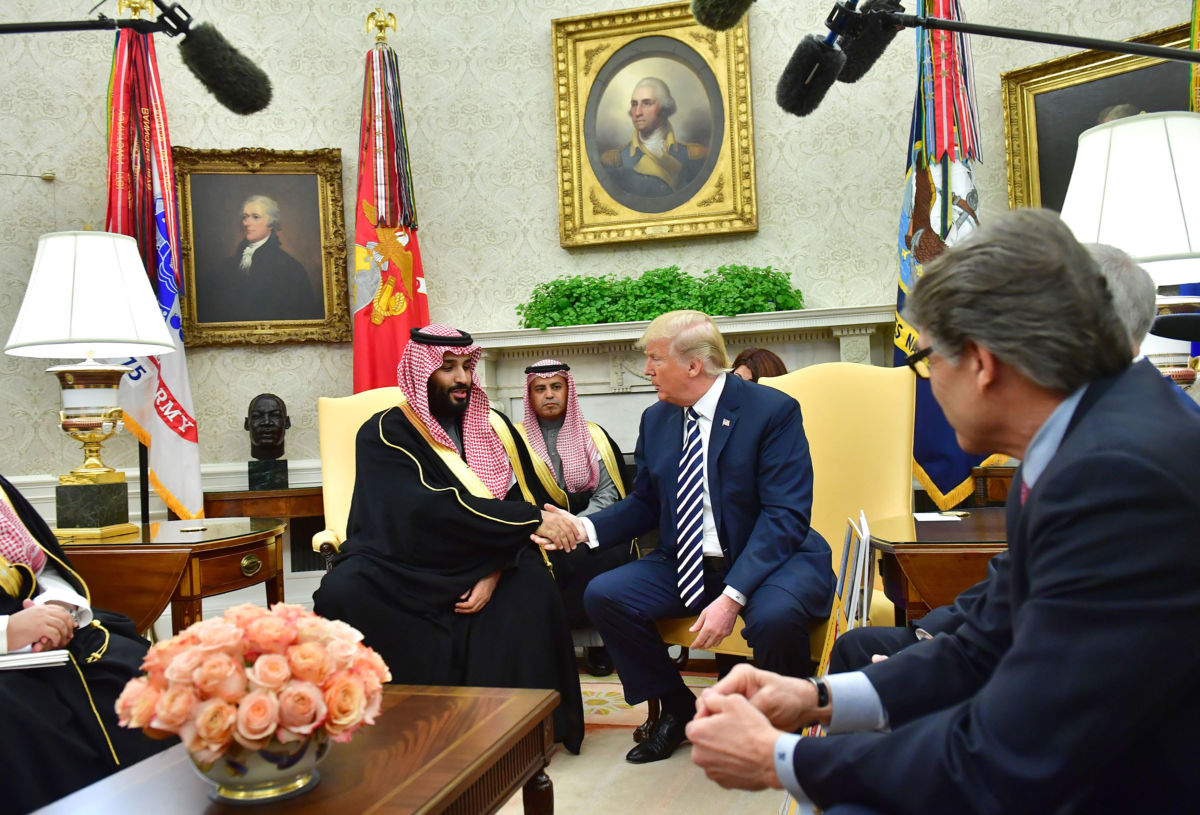The House Committee on Oversight and Reform announced last week it would be probing Trump administration allies and their push to have the U.S. government share nuclear power technology with Saudi Arabia. The committee’s report explained how an organization called IP3 International developed a plan for U.S. companies to build nuclear power plants in Saudi Arabia dubbed the “Middle East Marshall Plan.”
The report alleges Michael Flynn, while he was national security advisor to Trump’s presidential campaign and transition, and Thomas Barrack, chairman of the Trump Inaugural Committee and friend to the president, were proponents of the IP3 plan since at least the summer of 2015 and into the time Flynn was a White House advisor. Whistleblowers to the House committee were concerned that the plans, and administration officials’ links to them, would violate U.S. law.
Since early 2018, Saudi Arabia’s Ministry of Energy, Industry and Natural Resources has employed two U.S. firms to “provide advice and assistance concerning a potential bilateral agreement with the U.S. concerning peaceful uses of nuclear energy,” according to FARA filings and initially reported by Bloomberg.
One firm was the law office of David B. Kultgen, who has a long employment history regarding energy and Saudi Arabia. Kultgen worked for the Arabian American Oil Company and its successor Saudi Arabian Oil Company from 1973 to 2016, retiring as the company’s general counsel and corporate secretary. He registered as a foreign agent for the Ministry of Energy, Industry and Mineral Resources of the Kingdom of Saudi Arabia on Feb. 20, 2018 for the “provision of legal and consulting services.”
Kultgen reported his role as to “advise the Ministry with respect to the Saudi Government’s negotiation of the Agreement with the U.S. Government” in his FARA registration documents as well as “related agreements in connection with the Kingdom’s development of a commercial, peaceful nuclear energy program.” The filing also noted he would be responsible to “coordinate the work of U.S. law firms providing specialist advice and assistance to the Ministry.”
Kultgen received a healthy salary for his work. The Saudis paid him $349,171.17 through the end of May 2018, according to his latest filing.
Also registering to assist with the Saudi’s nuclear lobbying on the same day as Kultgen, was Jeffrey Merrifield from the Pillsbury, Winthrop, Shaw, Pittman firm. Merrifield is a member of the “revolving door,” formerly serving as majority counsel and staff director for the Senate Environment & Public Works Subcommittee on Superfund, Waste Control, & Risk Assessment from 1995 to 1998 and served as a commissioner on the Nuclear Regulatory Commission where he served from 1998 to 2007.
Merrifield also represented Brookfield Assets Management in 2018, which is named in the House Committee on Oversight’s report. The report said a subsidiary of Brookfield, Brookfield Business Partners, planned in January 2018 to purchase one of the companies IP3 planned to include in their “Middle East Marshall Plan.” Additionally, the report notes Brookfield Assets Management purchased a partnership stake in the 666 Fifth Avenue building owned by Jared Kushner’s family.
Merrifield’s role was similar to Kultgen’s, which was to “provide advice and assistance concerning potential bilateral agreement with US concerning peaceful uses of nuclear energy
under Section 123 of the Atomic Energy Act of 1954 and related legal matters concerning the development of a commercial nuclear program by the King Abdullah City for Atomic and Renewable Energy (KACARE),” according to FARA filings.
Kultgen was notified of the addition of lobbyists from the Pillsbury firm and confirmed the firm’s contract with the Saudis as “acceptable.”
On Jan. 30, 2019, the Pillsbury firm submitted an amendment which noted that they would be representing the Ministry of Energy, Industry and Natural Resources, as well as KACARE. Merrifield and Fork now represent both Saudi government-linked organizations.
That same day, William Fork, also from Pillsbury, registered as a foreign agent working on the same subjects as Merrifield and Kultgen. Fork’s registration came even after a growing backlash in the U.S. over the murder of Washington Post columnist and Saudi royal family critic Jamal Khashoggi in the Saudi consulate in Turkey.
Kultgen and the Pillsbury firm did not respond to requests for comment.
Press freedom is under attack
As Trump cracks down on political speech, independent media is increasingly necessary.
Truthout produces reporting you won’t see in the mainstream: journalism from the frontlines of global conflict, interviews with grassroots movement leaders, high-quality legal analysis and more.
Our work is possible thanks to reader support. Help Truthout catalyze change and social justice — make a tax-deductible monthly or one-time donation today.
